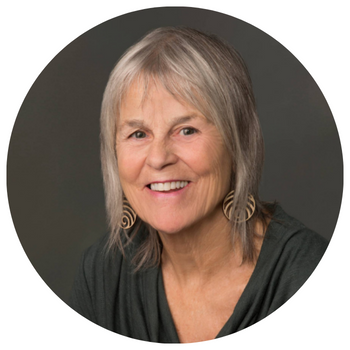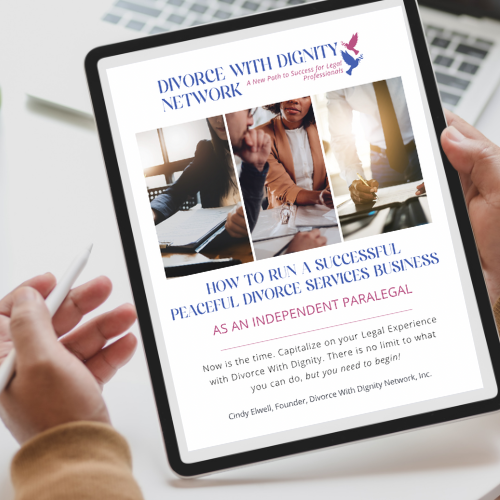In a recent conversation with San Francisco Bay Area attorney and mediator Joann Babiak, we were talking about what attorneys should keep in mind when accompanying a client to private mediation. Joann, who also has a background in psychology as well as extensive training in mediation and dispute resolution, had the following to say about this topic.
(Note: I will use the pronouns “she” and “her” throughout this article to avoid the awkward “he/she” and “him/her” formations.)
So, what are the top three things to think about when heading to private mediation?
- Your client’s welfare
- Your client’s welfare
- Your client’s welfare
Okay, so you already knew that. The most important thing you can do as an attorney is to prepare your client well for the mediation process and experience. The top three things to prepare them for are messaging, listening, and understanding the emotions and needs of the other person.
Messaging
The client should understand that her message must be clear and to the point. Many times, clients want to “tell the story” to a mediator. Your client’s concise presentation of facts, needs, and a suggested action plan for resolution of disagreement is critical. If important information gets lost in translation, desired outcomes are jeopardized.
Some ways you can prepare your client –
- Advise her that the way a message is delivered impacts the listeners. Craft soundbites. Help her develop appropriate pitch, pace and pause so your client relates a clear message to her listeners.
- Teach her how to talk about her concerns and options, as attorneys often are not present in the mediation sessions.
- Coach her so she develops comfort with an array of possible scenarios on a specific topic and understands productive ways in which she might react. Help your client find alternate solutions to an unsuitable option that might be presented. For example, instead of a flat refusal, she should be prepared to say something like, “No, that is not acceptable to me, here’s why…and would you consider…” followed by the presentation of an alternative.
Listening
There’s a big difference between just hearing what is said and truly listening to what someone is saying. When a person is undergoing emotional turmoil (as in a divorce), it’s frequently difficult to process the rapid exchanges of information in mediation. Help your client understand that she needs to keep negative feelings and thoughts under control so she can focus on working out a fair and acceptable divorce agreement. By really listening to the mediator and the messages from the other party, your client will be better able to discern points of agreement as well as address issues that need to be resolved.
Understanding the emotions and needs of the other person
In cases where no domestic violence has occurred, prepare your client by asking her to acknowledge her spouse’s emotions, reflect back his comments by restating them, and to address his needs when problem solving. In other words, have your client put herself in the other guy’s shoes. Some examples to illustrate what a client who is working out parent-share time with her former spouse could say are –
- “You seem angry. From what you said a minute ago, this stipulation feels unfair to you. Would more time on the weekend and less during the week work better for our parent-share?”
- “I understand you are scared that you won’t get to spend enough time with the children. We can add a trial overnight visit in a few months if this schedule goes well.”
When your client articulates these types of comments, the spouse tends to feel heard and understood. The emotional atmosphere becomes calmer, and real dialogue can ensue and solutions are more easily found.
In addition to preparing your client for the mediation process itself, you can also advise her about how to select a private mediator. Perhaps you know someone you can recommend – if possible, give several referrals. You should encourage your client to interview potential mediators, and ask a lot of questions about the mediator’s experience, style, and about how he or she conducts mediation sessions, to find one she feels comfortable with. Once she makes a selection, in case the mediator asks to have some or all of the sessions without attorneys present, be sure to inform your client how to bring relevant information back to you so the two of you can consult about strategic considerations and next steps.
Our thanks to Joann for sharing her insights on this topic. Mediation to create peaceful resolutions to conflicts that come up in divorce is a method we in the Divorce With Dignity Network whole-heartedly support. The philosophy shared by the legal professionals who make up the Network is that divorcing couples should have access to options that help them achieve an amicable and affordable divorce without the strain and animosity that can accompany litigation in divorce court. We know that families going through divorce often need more than just assistance with the legal paperwork, which is why we provide referrals to other professionals, such as mediators or attorneys, when appropriate.
If you are a legal professional who shares our philosophy and who is seeking an opportunity to have your own divorce legal services business (or add another service to your existing law practice), please visit our website to learn more.
*********************
The author of this blog is not an attorney and the information contained in these blogs should not be considered legal advice. The information provided here is based on the experience of the author and some of her clients whose actual names are not mentioned. Do not hesitate to seek the advice of an attorney if you have any legal questions.





